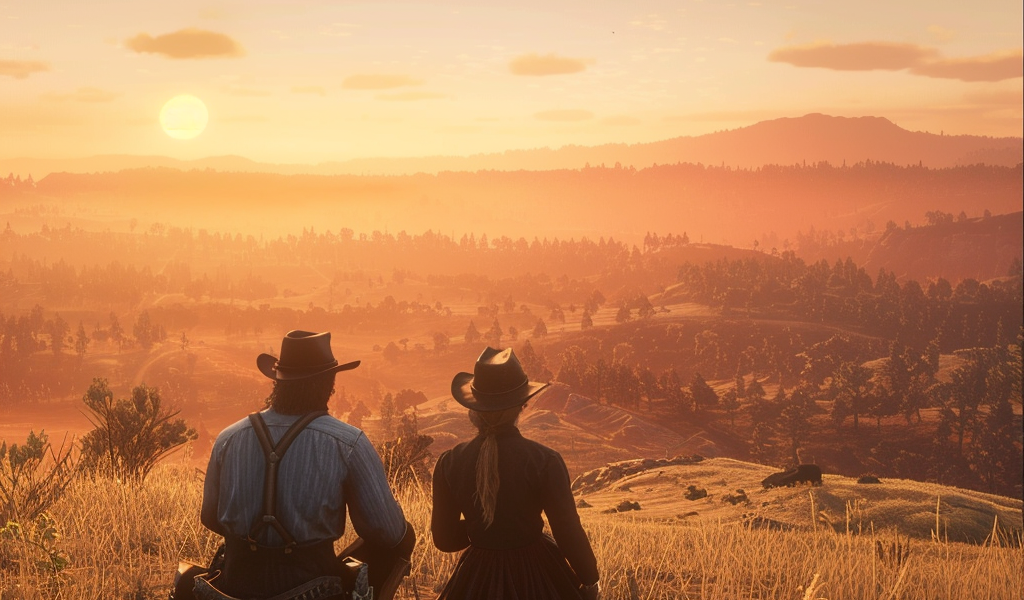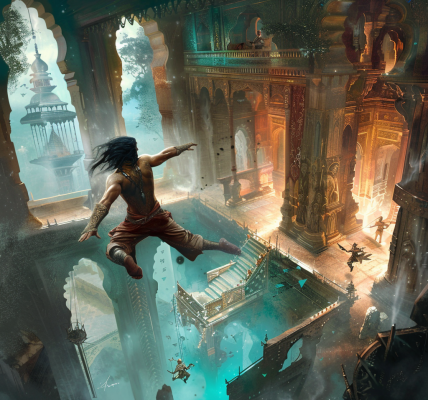The video game industry continues to captivate audiences worldwide, and one title that stands out in this landscape is Red Dead Redemption II. With over 64 million copies sold since its release in 2018, this game has not only achieved commercial success but has also sparked discussions about its potential as an educational tool, particularly in teaching history.
Red Dead Redemption II immerses players in a fictionalized version of America in 1899, following the adventures of the Van der Linde gang, a group of outlaws navigating a rapidly changing society. The game’s narrative intricately weaves themes of corporate capitalism, settler colonialism, women’s suffrage, and racial inequality, making it a rich resource for historical exploration.
In recent years, educators have begun to recognize the value of video games in the classroom. The COVID-19 pandemic provided a unique backdrop for one professor’s innovative approach to teaching history. Tore Olsson, an Associate Professor of History at the University of Tennessee, found inspiration in his own experiences during lockdown. After rediscovering his passion for video gaming, he decided to develop a course that would utilize Red Dead Redemption II as a medium for exploring America’s complex and often violent past.
Olsson’s course, titled Red Dead’s History: Exploring America’s Violent Past Through the Hit Video Game, aims to engage students in a critical examination of historical events and themes presented in the game. By analyzing the narrative and context of Red Dead Redemption II, students are encouraged to draw connections between the game’s portrayal of society and the real historical events that shaped America.
One of the key elements of the course is the examination of the Gilded Age, a term coined by Mark Twain to describe a period characterized by stark contrasts between wealth and poverty. The game’s depiction of outlaws and their struggles against an encroaching government mirrors the historical tensions of the era. Students delve into discussions about the implications of corporate power, the impact of colonialism on Indigenous populations, and the fight for social justice and equality.
Video games like Red Dead Redemption II provide a unique opportunity for interactive learning. Unlike traditional textbooks, video games engage players in a narrative that requires them to make choices, confront moral dilemmas, and experience the consequences of their actions. This immersive experience can lead to deeper understanding and retention of historical concepts.
Moreover, the visual and auditory elements of video games enhance the learning experience. Players are not only reading about history; they are living it through the characters and settings within the game. The attention to detail in Red Dead Redemption II—from its meticulously crafted landscapes to its authentic dialogue—offers a vivid representation of the past that can supplement traditional historical education.
As educators continue to explore innovative teaching methods, the integration of video games into the curriculum is gaining traction. By using popular titles that resonate with students, teachers can foster engagement and promote critical thinking. Olsson’s course exemplifies this trend, showing how gaming can transcend entertainment and become a powerful educational tool.
In addition to addressing historical themes, the course also encourages students to reflect on the ethical implications of their choices within the game. This aspect of gameplay prompts discussions about morality, justice, and the complexities of human behavior—topics that are as relevant today as they were in the past.
Olsson’s approach to teaching history through Red Dead Redemption II is part of a larger movement within academia that seeks to redefine the boundaries of education. As the landscape of learning evolves, so too do the methods by which knowledge is conveyed. Video games, once dismissed as mere entertainment, are emerging as valuable resources for educators aiming to create dynamic and engaging learning environments.
As more educators experiment with video games in their curricula, the potential for expanding students’ understanding of history and society grows. The intersection of gaming and education opens up new avenues for exploration, dialogue, and discovery, making history not just a subject to study but an experience to be lived.
In summary, the success of Red Dead Redemption II as a video game is not merely measured in sales figures but also in its ability to inspire innovative educational practices. By harnessing the power of interactive storytelling, educators like Tore Olsson are paving the way for a new era of history education that is both engaging and enlightening.





